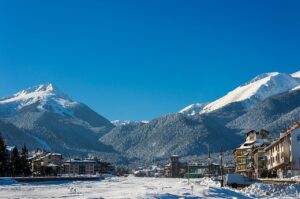Welcome to Lille, a vibrant city nestled in the northern tip of France, just a stone’s throw from the Belgian border. This guide is crafted to help you immerse yourself in everything Lille has to offer, from its rich tapestry of history and culture to its lively streets and cozy eateries. Let’s dive into your next great adventure!
Geographic Location
Lille is strategically located at the crossroads of Europe, making it a hub for travelers. It’s easily accessible from major cities like Paris, Brussels, and London. The city’s unique position adds to its charming blend of French and Flemish culture, offering a truly multicultural atmosphere.
History and Culture
Steeped in history, Lille’s past as a medieval trading center and an industrial powerhouse is visible in its architecture and museums. The Old Town, with its Flemish Renaissance buildings, and the impressive Citadel designed by Vauban in the 17th century, are testaments to its rich heritage. Lille is also a city of art, with the renowned Palais des Beaux-Arts housing masterpieces by artists such as Rubens and Van Gogh.
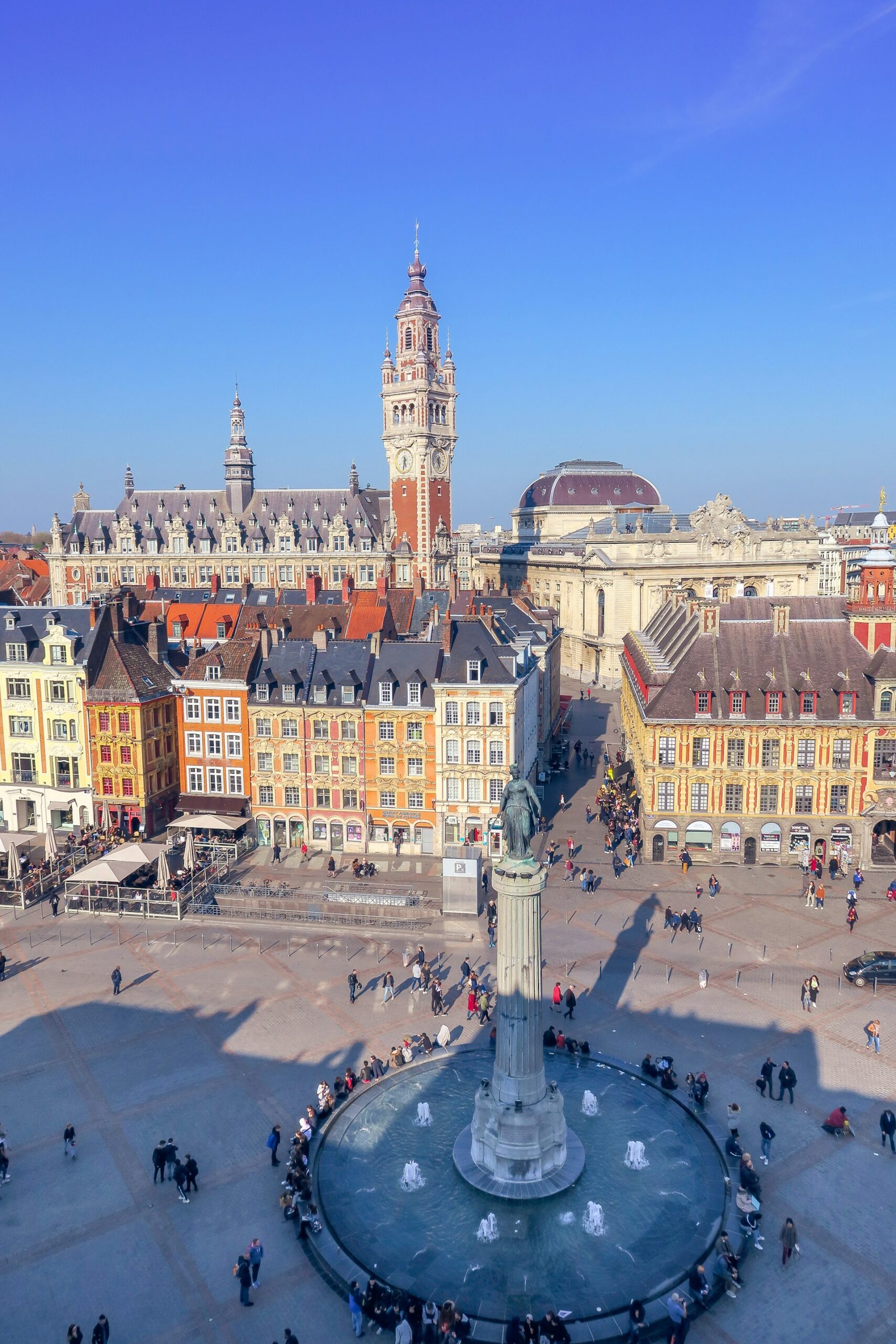
Climate and Weather
Lille experiences a temperate oceanic climate. Winters are mild and summers are pleasantly warm, although rain is quite common throughout the year. The best time to visit would be late spring or early autumn when the weather is most agreeable for exploring the city.
How to Reach Lille
Lille is exceptionally well-connected, making it easily accessible by various modes of transportation:
- By Air: The Lille Lesquin International Airport is just 15 minutes from the city center and offers domestic and international flights.
- By Train: Lille Europe and Lille Flandres are the two main train stations, connecting Lille directly to major cities like Paris, London, and Brussels via high-speed trains like Eurostar and TGV.
- By Car: Lille is linked to several major highways (A1 from Paris, A25 from Dunkirk, and A22 from Ghent, Belgium), making it convenient for road trips.
- By Bus: Various international and national bus lines provide services to Lille, offering a budget-friendly travel option.
Attractions
Must-Visit Places in Lille
Beyond the highlights mentioned earlier, Lille is filled with attractions worth exploring:
Vieux Lille (Old Town)
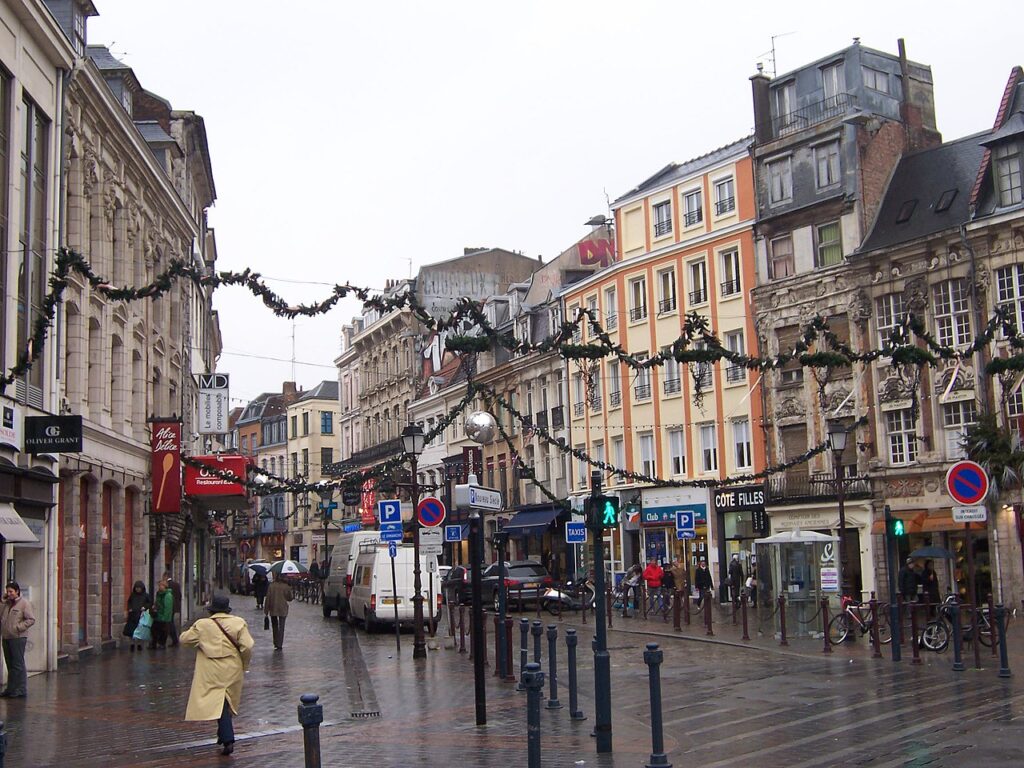
Vieux Lille is the historic core of the city, where the charm of old Europe is palpable. Wander through narrow cobbled streets lined with restored buildings showcasing the architectural splendor of the Flemish Renaissance. This area is a shopping haven with boutique stores, quaint cafes, and artisanal shops. The main squares, Place Charles de Gaulle and Place du Théâtre, are lively hubs that host various events and markets throughout the year.
Palais des Beaux-Arts
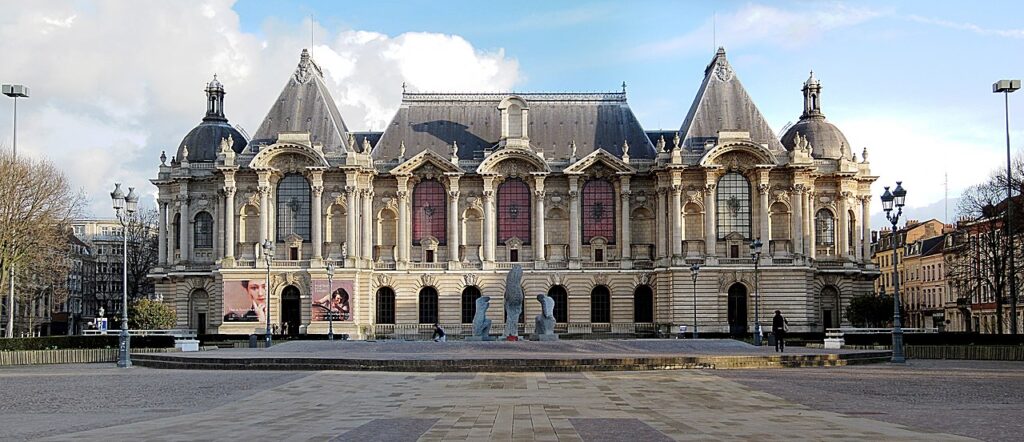
As one of the largest museums in France outside of Paris, the Palais des Beaux-Arts de Lille houses an impressive array of fine arts. From European paintings and sculptures to a vast collection of drawings and ceramics, the museum’s artifacts span the Middle Ages to the 20th century. Noteworthy pieces include works by Goya, Delacroix, and Rubens. An entrance fee is required, but it’s worth every penny for art lovers.
Grande Place (Main Square)

Grande Place, also known as Place Charles de Gaulle, is the historic heart of Lille, serving as a central meeting point and the city’s main square. Surrounded by ornate 17th-century Flemish baroque buildings and lively cafes, it’s a bustling hub of activity day and night. The square is not only a visual delight but also hosts numerous events and markets, making it a must-visit for anyone looking to soak in the local culture and ambiance.
The Citadel
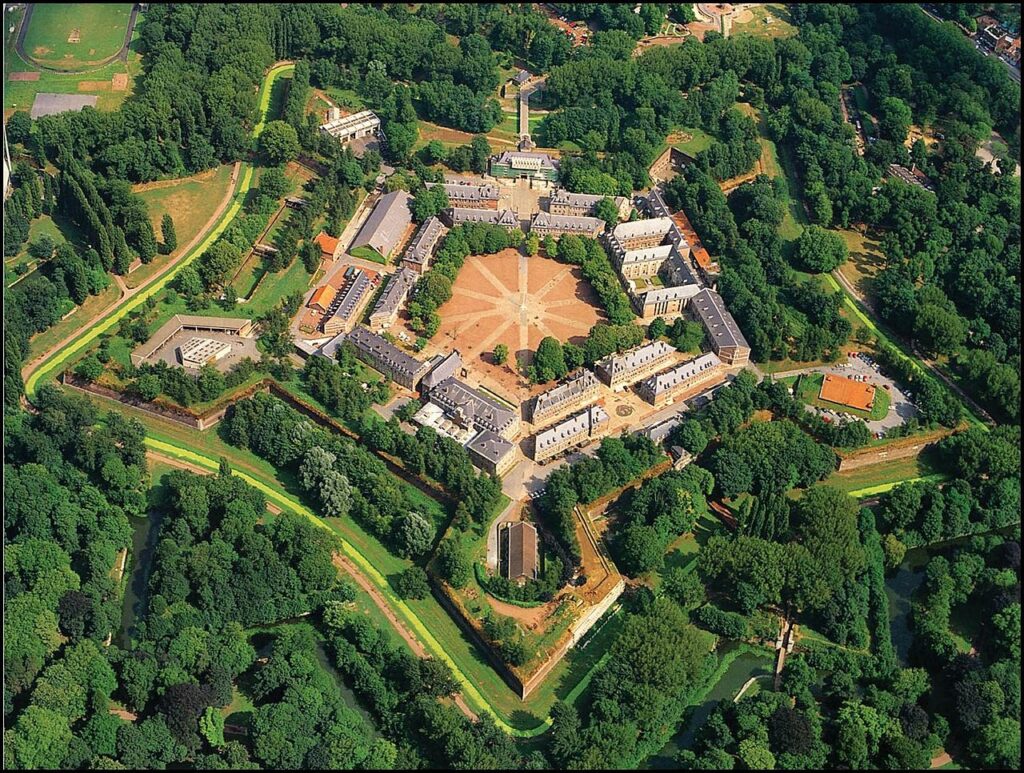
Built in the 17th century by the famed military engineer Vauban under the orders of Louis XIV, the Citadel of Lille is an imposing five-pointed star fortress. Today, it still serves as a military base and hence, interior access is limited. However, the surrounding park is open to the public, offering pleasant walks and a chance to admire the fortress walls from the outside.
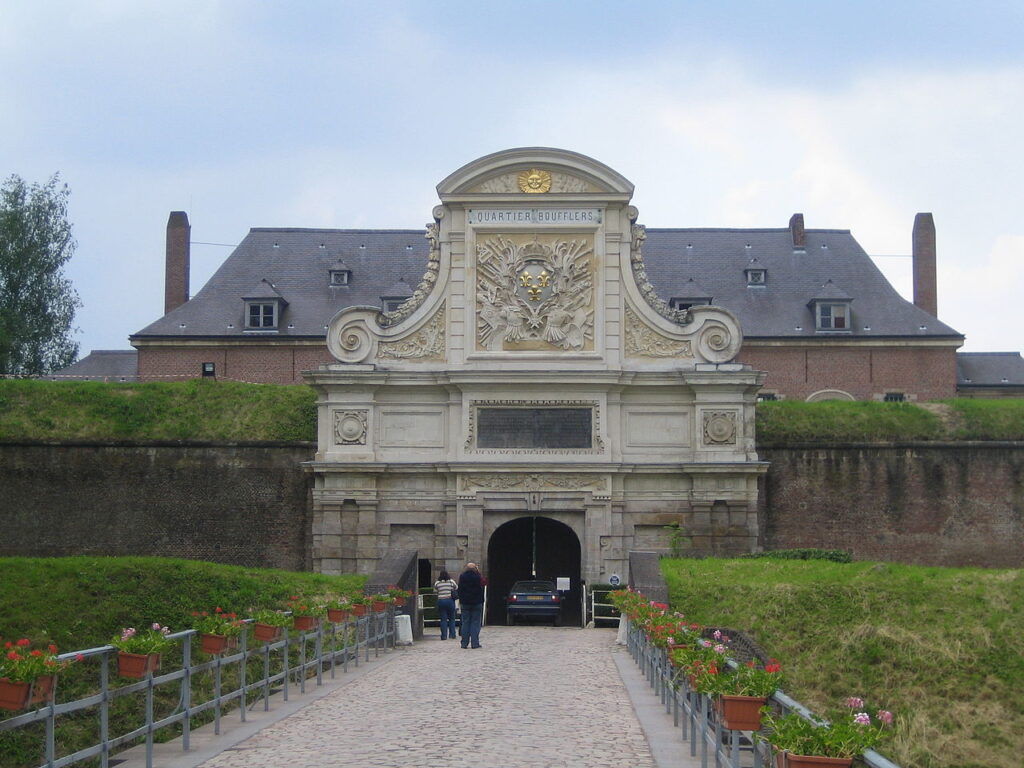
Lille Zoo
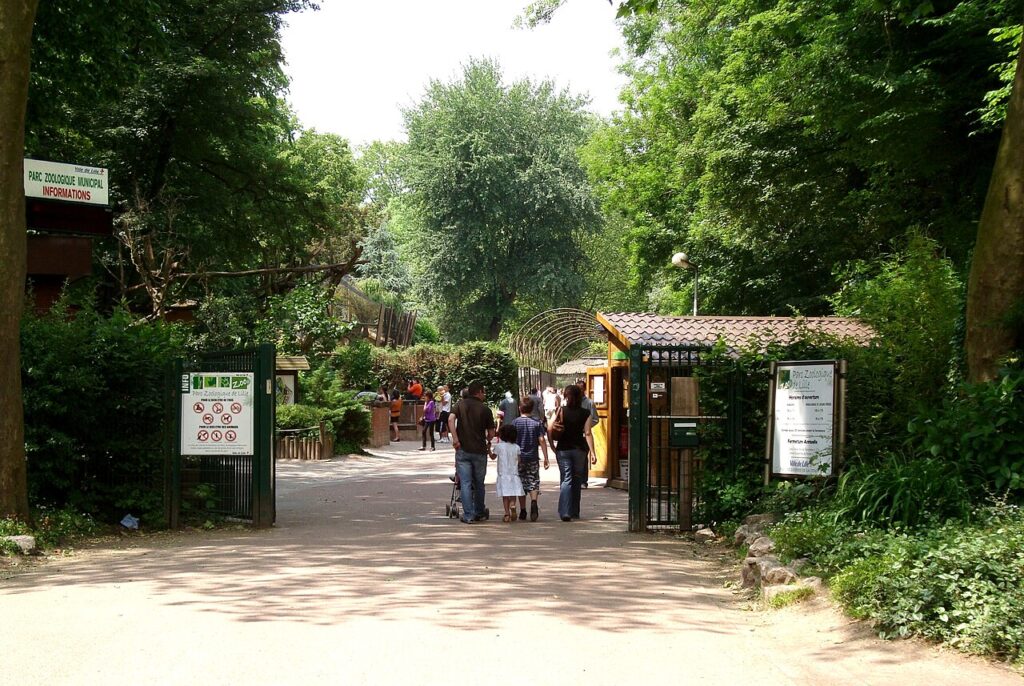
Lille Zoo, nestled in the scenic surroundings near the Citadel, is a delightful destination for visitors of all ages. Home to more than 70 species of animals from around the globe, the zoo focuses on conservation and education, offering an engaging experience that highlights biodiversity and environmental awareness. It’s a perfect spot for a family day out, where both children and adults can enjoy watching a diverse range of wildlife in well-maintained habitats.
Hospice Comtesse Museum

Situated in a former hospital for the poor established in 1237, the Hospice Comtesse Museum offers a deep dive into the local history of Lille. The museum features a rich collection of paintings, sculptures, and decorative arts, as well as exhibits on the hospital’s history and the daily life of its residents. A small entrance fee applies, giving you access to beautifully preserved rooms and a glimpse into the past.
Modern Art Museum (LaM)
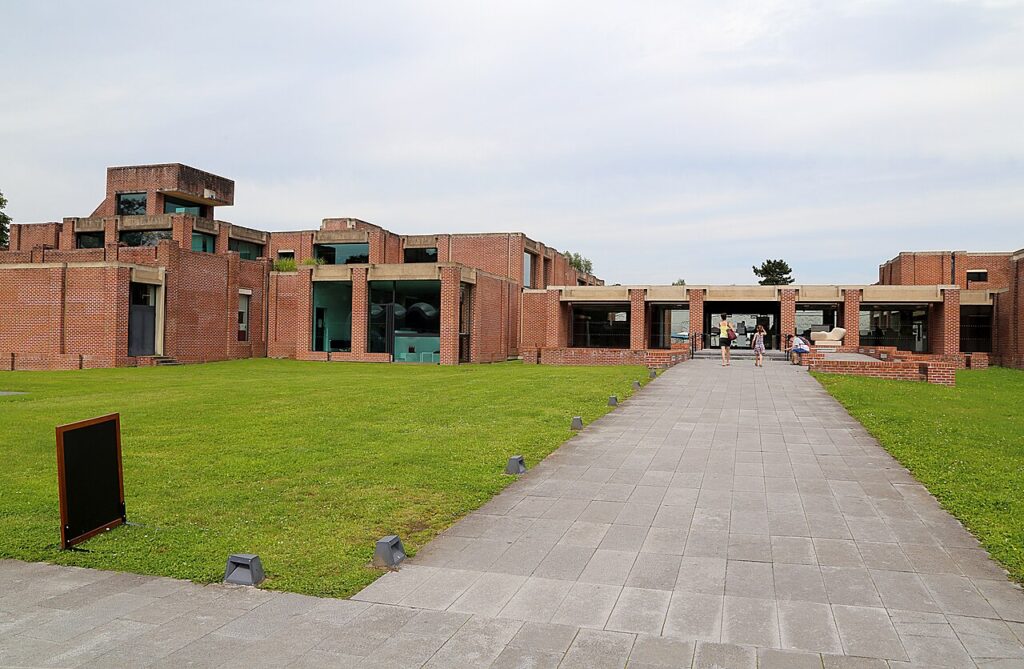
In the suburb of Villeneuve d’Ascq, the LaM holds one of the most significant collections of modern, contemporary, and outsider art in France. The museum’s park features an outdoor sculpture garden that complements the indoor galleries. Exhibits range from Picasso and Modigliani to contemporary giants. The museum charges an entrance fee, which covers both the permanent collections and temporary exhibits.
Jardin des Géants
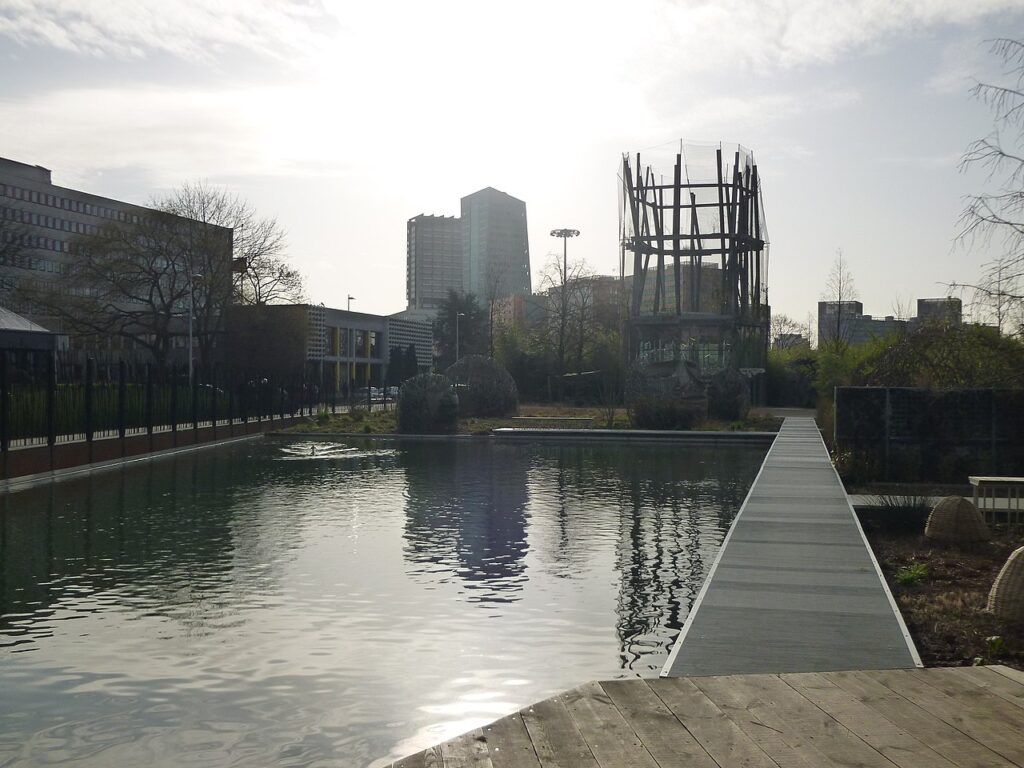
Literally translating to “Garden of the Giants,” this modern park is a perfect escape into nature within the urban landscape. Free to the public, it features landscaped areas with thematic gardens, winding paths, and playful sculptures, making it ideal for a leisurely stroll or a peaceful afternoon.
La Piscine Museum
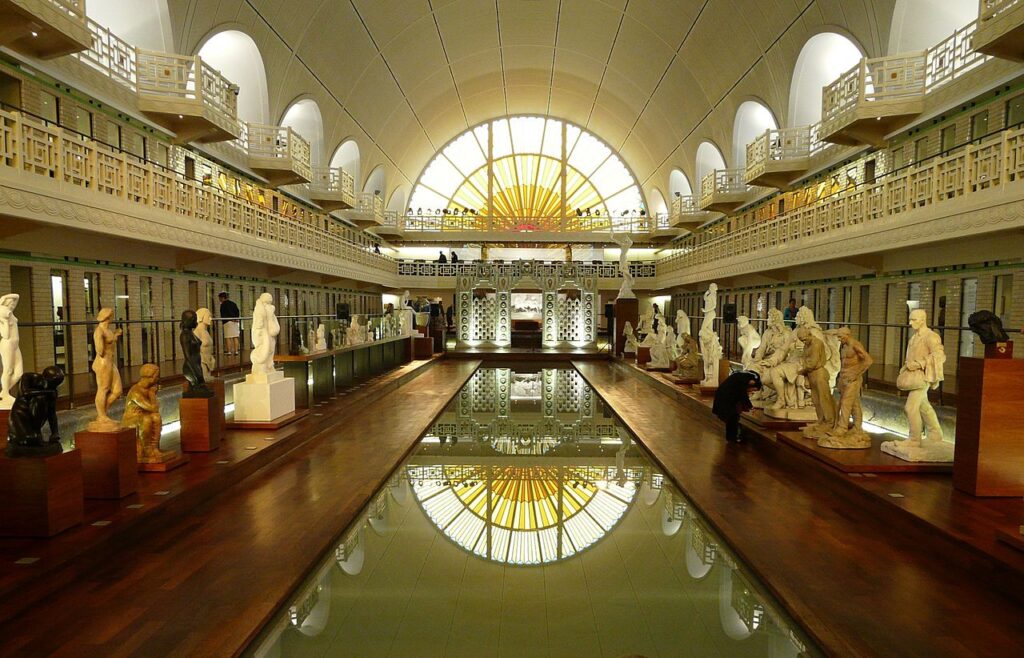
Located in the nearby town of Roubaix, La Piscine Museum is a short metro ride from central Lille. This art and industry museum is uniquely housed in a former Art Deco swimming pool, giving it an extraordinary backdrop for its exhibitions. The collections include fine arts, textiles, and fashion, with rotating exhibitions that keep the offerings fresh. There is an entrance fee, which includes access to temporary exhibitions.
Sports Venues and Olympic Events
Lille will host several events during the 2024 Olympics, turning the city into a sports enthusiast’s dream destination:
Stade Pierre-Mauroy
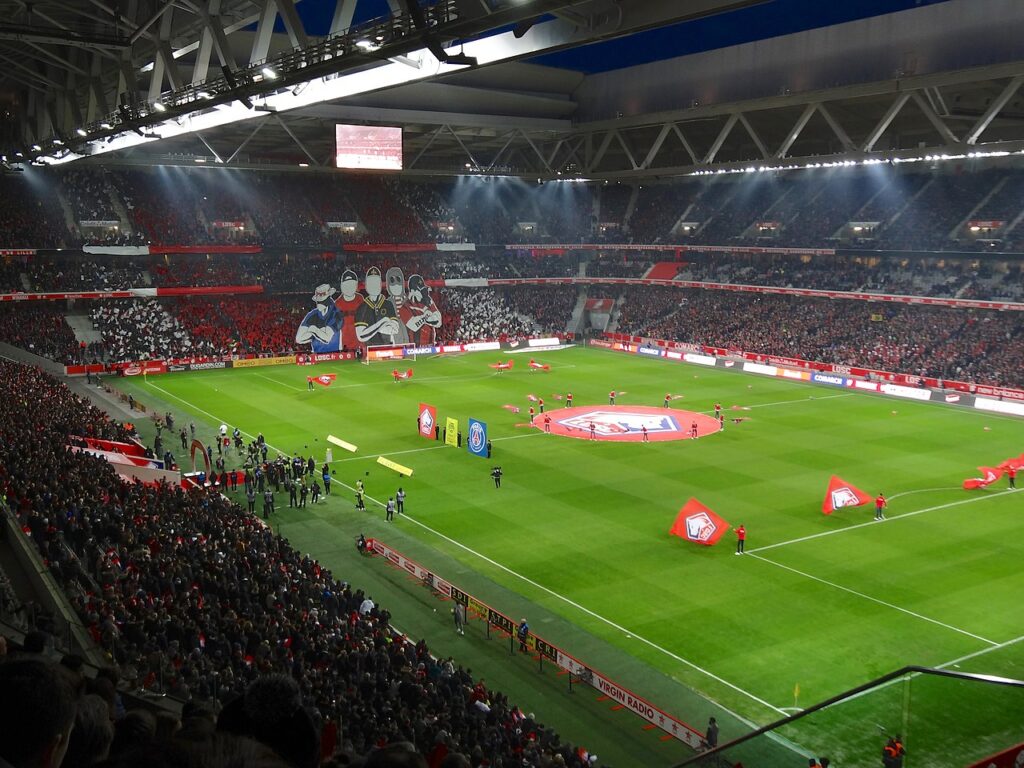
This versatile stadium, usually home to Lille OSC football matches, will be adapted for the Olympics to host basketball and handball events.
Where to Eat and Drink
Lille’s culinary scene is a delightful mix of traditional French and Flemish influences. Try local specialties like carbonnade flamande (beef stew) or the famous waffles at Méert. For craft beer enthusiasts, visit local breweries like Brasserie de la Senne for a taste of regional brews. Here are some restaurant recommendations:
- Aux Moules: Famous for its traditional moules-frites (mussels with fries), this restaurant in Old Town is a must-visit. Booking in advance is recommended.
- Le Barbue d’Anvers: A charming establishment offering Flemish cuisine with a modern twist. Their carbonnade flamande is highly recommended.
- La Ducasse: Known for serving local dishes, this cozy restaurant provides a genuine taste of Lille. Reservations are advisable.
- Méert: This historic cafe and pastry shop is renowned for its delicious waffles and chocolates—a perfect spot for a sweet treat.
- Brasserie de la Paix: A more upscale option, serving exquisite French cuisine, located near the Grand Place. Reservations are essential.
Lille also has a vibrant beer scene that perfectly complements its rich culinary offerings. The city and its surrounding regions are known for their unique beer culture, with local breweries and pubs that offer a variety of traditional and craft beers. Here are some recommendations for local breweries and beer halls where you can savor authentic lager and other styles:
- Brasserie de la Senne: This local brewery is known for its dedication to traditional brewing methods, producing flavors that are robust and distinctly Belgian, yet just a short journey from Lille. While primarily known for their ale styles, they also produce excellent lagers that are crisp and refreshing.
- Le Barboteur: Located in the nearby town, Le Barboteur is a charming beer hall that features a wide selection of local brews, including their own craft lagers. The atmosphere is casual and friendly, making it a great spot to relax and enjoy a cold beer with locals.
- Gare Saint Sauveur: This former freight station turned cultural hub often hosts beer festivals and pop-up beer events featuring local microbreweries. It’s a fantastic place to try a variety of beers, including lagers from small-scale producers that you might not find elsewhere.
- L’Abbaye des Saveurs: This specialized beer shop in the heart of Lille offers a broad selection of bottled beers from around the region and beyond. They also have a tap room where you can taste different styles, including refreshing lagers, before deciding on your favorite ones to take home.
- Au Brasseur: A brewpub in the city center where beers are brewed on-site, Au Brasseur offers a cozy setting to explore different beer styles. Their house lager is a must-try, known for its perfect balance and smooth finish.
Festivals and Events
The Braderie de Lille
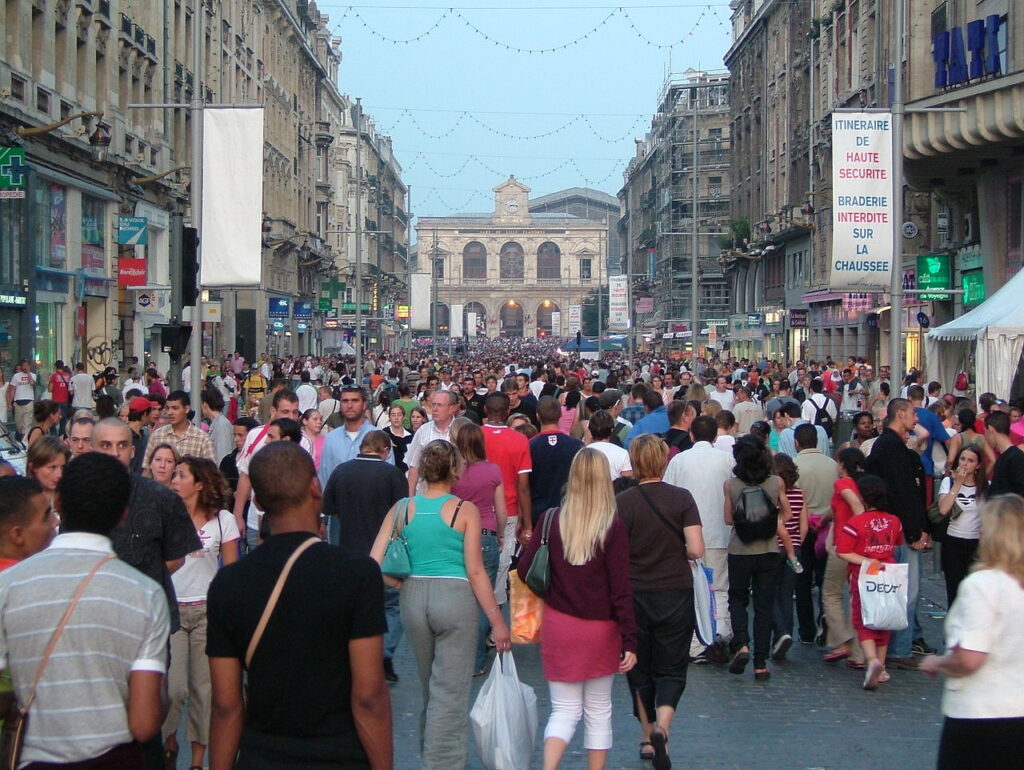
The Braderie de Lille is not just any flea market; it’s an iconic event that takes place every first weekend of September, drawing visitors from all over Europe and beyond. This historic event dates back to the 12th century and has evolved into the largest flea market in Europe. Over the course of 48 hours, the city streets are transformed into a bustling marketplace stretching for miles. Vendors sell everything from vintage furniture and antiques to books and vinyl records. The atmosphere is festive, with live music and food stalls serving up local specialties. The most traditional dish of the Braderie is “moules-frites” (mussels with fries), and it’s customary for restaurants to stack the empty shells outside their establishments, creating growing mounds that become a spectacle in themselves. The event is free to attend, and it’s a perfect opportunity for bargain hunters and vintage lovers to find unique treasures.
Lille3000
Lille3000 is a relatively recent addition to Lille’s cultural landscape, first launched in 2004 following the city’s tenure as the European Capital of Culture in 2004. This ambitious project organizes a series of major cultural events, themed exhibitions, and artistic performances that take place every three or four years. Each edition of Lille3000 revolves around a specific theme and involves collaborations with artists, designers, and performers from around the world, effectively transforming the entire city into a vibrant gallery and performance space. Past themes have included “Bombaysers de Lille,” focusing on Indian culture, and “Eldorado,” exploring myths and stories of mythical lands from various cultures.
Nightlife
The lively area around Solférino and Masséna streets is the hub of Lille’s nightlife, offering a range of bars and clubs. For a more relaxed vibe, the Gare Saint Sauveur hosts evening events and concerts in a laid-back setting.
Shopping
From high-end boutiques in Vieux Lille to the large Euralille shopping center, Lille caters to every shopper’s paradise. Don’t miss the Wazemmes market for local products and souvenirs.
Public Transport in Lille
Lille’s public transport system is managed by Transpole and offers a convenient and efficient way to navigate the city and its surrounding areas. The network includes two metro lines, numerous bus routes, and two tram lines that connect Lille to nearby suburbs.
- Day Passes and Multi-Day Tickets: For tourists, one of the most cost-effective options is to purchase a day pass known as the “Pass Journée,” which allows unlimited travel on the metro, tram, and bus services within the metropolitan area. The pass is available for single-day use, but for those staying longer, Transpole also offers a multi-day pass that can be a good value for extended stays. These passes not only make it easy to hop on and off public transportation as you explore the city’s attractions but also eliminate the need to purchase individual tickets for each journey.
Alternative Modes of Transport
- Bike Rentals: Lille is particularly bike-friendly, with many dedicated bike lanes and quieter streets that are ideal for cycling. The city offers a bike-sharing program known as V’Lille, which has both traditional and electric bikes available at numerous stations throughout the city. Rentals can be done via a subscription service or on an as-needed basis, with options ranging from short-term access for a few hours or days to longer-term rentals.
- Car Rentals: For those who prefer driving, Lille has several car rental agencies, including major international brands and local providers. Renting a car might be particularly useful if you plan to visit attractions outside of Lille or explore the rural regions of Northern France. However, driving and parking in the city center can be challenging due to traffic, narrow roads, and parking restrictions. It’s often recommended to use park-and-ride facilities located on the outskirts of the city, where you can park your car and use public transport to enter the center.
Using public transportation is highly recommended as it is not only efficient but also environmentally friendly.
Safety and Health
Lille is generally a safe city. However, like in any urban area, it’s wise to stay aware of your surroundings, especially at night. The city is well-equipped with healthcare facilities should you need medical attention.
Accommodation
Lille offers a diverse array of accommodation options, catering to every type of traveler, from those seeking luxury to budget-conscious visitors. Here’s a guide to help you find the perfect place to stay during your visit to Lille.

Luxury Hotels
- L’Hermitage Gantois: Situated in a 15th-century building that has been beautifully restored, this 5-star hotel offers a blend of historical charm and modern luxury. It features a gourmet restaurant, a spa, and elegantly decorated rooms. Prices typically start around €200 per night.
- Hotel Barrière Lille: This contemporary 5-star hotel near the city center and the main train stations offers chic accommodation with modern amenities, including a casino, a theater, a fitness center, and multiple dining options. Room rates start at approximately €180 per night.
Mid-Range Hotels
- Mercure Lille Centre Grand Place: Located right in the heart of the city, this hotel is housed in a beautiful 19th-century building and offers comfortable, modern rooms. It’s ideal for tourists interested in exploring the city on foot. Expect to pay around €100 to €150 per night.
- Ibis Styles Lille Centre Grand Place: This is a great option for those who want central accommodation without the luxury price tag. The hotel offers colorful and contemporary rooms with breakfast included. Prices are generally from €80 to €120 per night.
Budget Options
- St Christopher’s Inn Hostel: Located near Lille’s vibrant bars and restaurants, this hostel is perfect for younger travelers or those on a tight budget. It offers both dormitory beds and private rooms, with excellent facilities including a bar and free WiFi. Dorm beds can be booked for as little as €25 to €35 per night, while private rooms are around €60.
- HotelF1 Lille Villeneuve d’Ascq: With basic but clean rooms, this hotel chain offers one of the most affordable stays in the city. Prices for rooms start at about €30 to €50 per night. While it’s a bit outside the city center, public transport nearby makes it accessible.
Bed and Breakfasts and Guesthouses
- Guesthouse A la Maison du Héron: This charming B&B, situated in a quiet suburb of Lille, features beautifully decorated rooms and a warm, welcoming atmosphere. Prices for rooms range from €80 to €120 per night, including breakfast.
- Au Cœur du Jardin: Nestled in the heart of Lille, this apartment-style accommodation offers the comfort of home with the service of a hotel. Ideal for families or longer stays, it provides fully equipped kitchenettes in each apartment. Rates are about €100 to €150 per night.
Practical Tips for Booking Accommodation in Lille
- Book in Advance: Lille is a city where every corner holds a new discovery. Whether you’re here for its historical treasures, culinary delights, or simply its warm and welcoming atmosphere, Lille promises a memorable experience. Bon voyage and enjoy your stay in this beautiful French city! Especially during major events or festivals, accommodation in Lille can fill up quickly. Booking several months in advance can secure better rates and ensure availability.
- Consider Location: Staying near major attractions or close to public transport can save you time and money on transportation.
- Check Reviews: Always look at recent reviews to get a sense of the service, cleanliness, and overall experience at the accommodation.
Language and Basic Phrases
While French is the official language, English is commonly spoken due to Lille’s tourist-friendly environment. Basic phrases in French, like “Bonjour” (Hello) and “Merci” (Thank you), will be appreciated.
Local Currency and Payment Methods
The euro (€) is the currency. Credit cards are widely accepted, but carrying some cash is advisable for smaller purchases.
Lille is a city where every corner holds a new discovery. Whether you’re here for its historical treasures, culinary delights, or simply its warm and welcoming atmosphere, Lille promises a memorable experience. Bon voyage and enjoy your stay in this beautiful French city!


